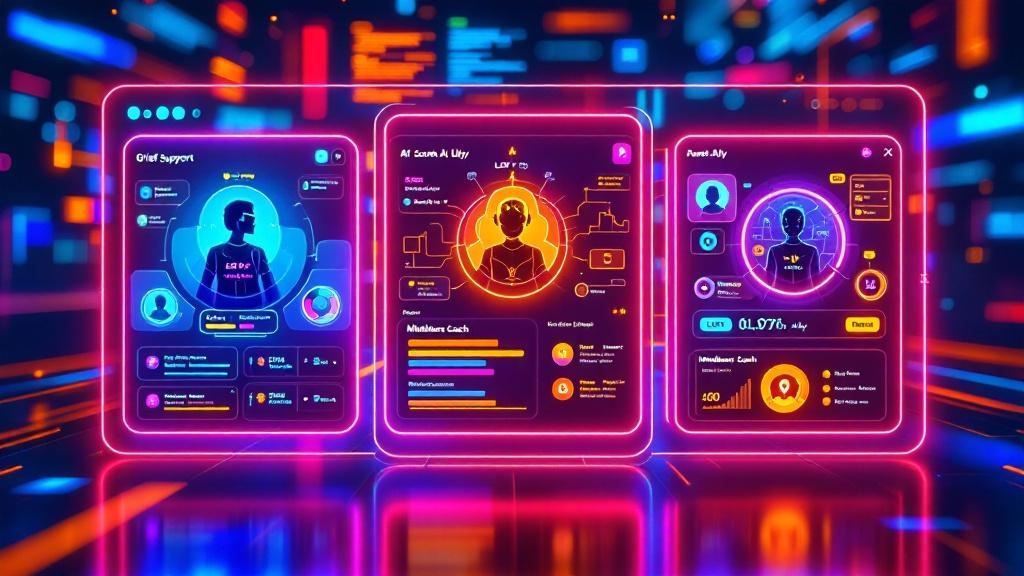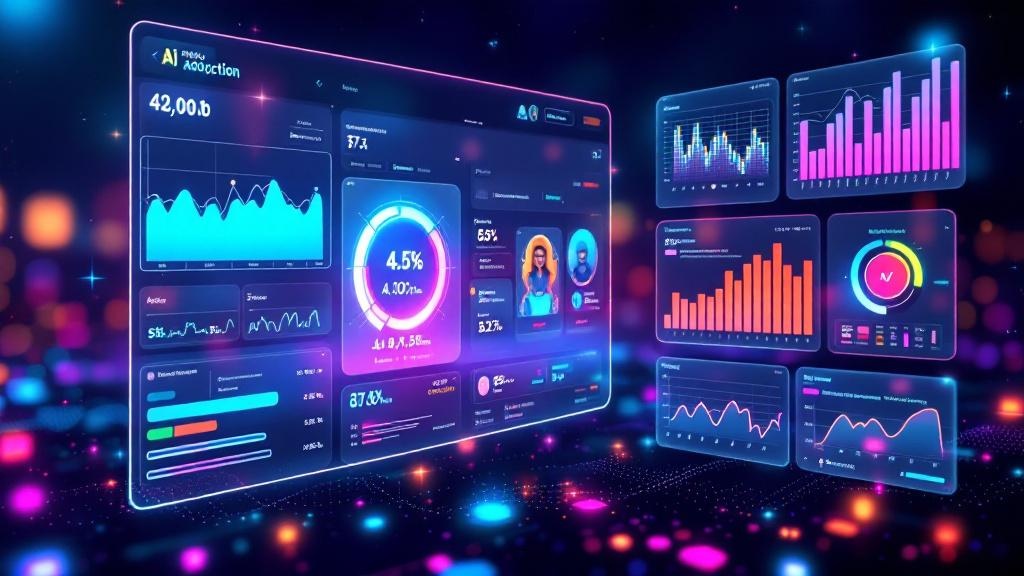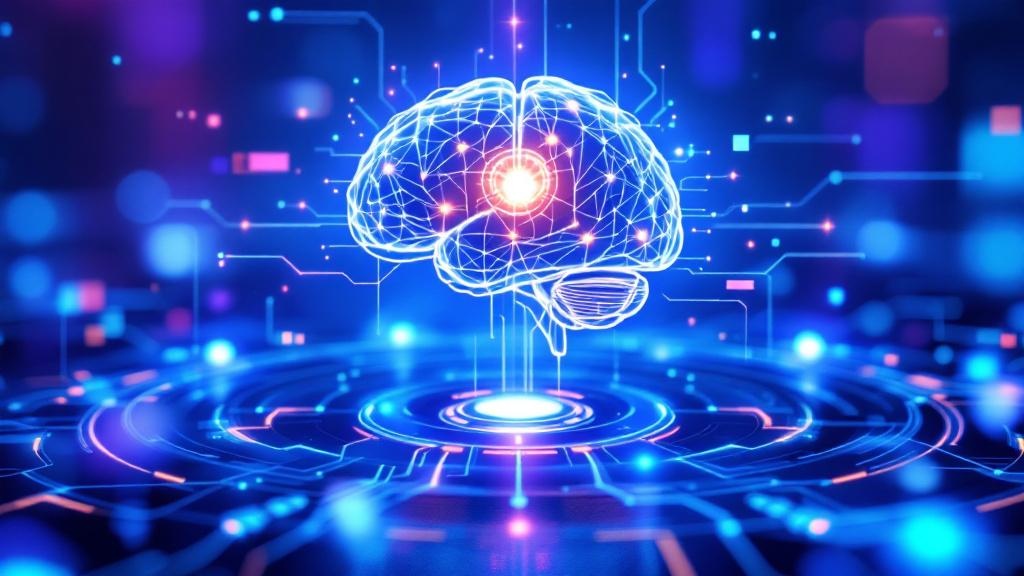Introduction
In recent years, generative AI (GenAI) has moved beyond traditional use cases like content creation and automation. One of its most promising and transformative applications is emerging in the field of emotional support and mental wellness. In 2025, more individuals are turning to GenAI tools not just for productivity but for emotional companionship, guided self-reflection, and mental health coaching. With capabilities rooted in natural language understanding, contextual memory, and empathetic conversation, GenAI offers a new frontier for accessible, customizable mental wellness support.

The Rise of AI for Emotional Support
Mental health services have historically faced challenges including high costs, long wait times, limited access in rural areas, and the persistent stigma that discourages many from seeking help. GenAI tools are now stepping in to fill this gap, offering on-demand emotional support and self-care resources that are always available, approachable, and often free to use.
Trained on extensive datasets that incorporate psychological theories, therapeutic frameworks, and empathetic dialogue strategies, these AI companions can:
- Help manage stress and anxiety through breathing exercises, mindfulness routines, and positive affirmations
- Guide users through journaling prompts and cognitive reframing to shift negative thought patterns
- Provide motivational conversations to enhance self-esteem and resilience
- Track emotional patterns over time and offer personalized wellness insights
These tools aren’t meant to replace licensed professionals, but serve as a helpful supplement for early intervention, daily self-check-ins, or maintaining wellness between therapy sessions. They also offer a judgment-free environment where users can express themselves openly without fear of stigma.
As GenAI becomes more emotionally intelligent, its potential to provide meaningful emotional support is explored in AI is Becoming More Context-Aware and Emotionally Intelligent.

Custom GPTs for Niche Mental Wellness Needs
One of the most powerful evolutions in emotional AI is the development of custom GPTs tailored to specific emotional wellness goals or communities. Platforms like GEE-P-TEE make it possible for coaches, mental health advocates, and organizations to develop AI agents finely tuned for:
- Grief processing and emotional recovery
- Teen mental health support and peer-style dialogue
- LGBTQ+ affirming mental health tools
- Mindfulness and meditation training based on MBSR practices
- Personal growth coaching for goal setting and mindset shifts
These customized GPTs can be embedded in websites, mobile apps, or wearable devices, offering seamless access to emotional support wherever users go. Because they are purpose-built, they resonate more deeply with specific communities and provide more relevant, targeted advice.
Such tools are not only transforming how individuals care for their mental wellness but also empowering professionals and support networks to scale their reach with AI-enhanced assistance.
The conversational power behind GenAI companions is built on the foundations of large language models, explained in How Does Large Language Models Work.

Privacy, Ethics, and Responsible AI Use
The use of AI in sensitive areas like mental wellness demands the highest standards in ethics and data privacy. Trust is essential when users are sharing personal emotional experiences, so developers must take comprehensive steps to safeguard user well-being. Key ethical principles include:
- Strict Data Privacy: Implementing end-to-end encryption, anonymized data handling, and user-controlled data retention policies
- Transparency: Clearly informing users that they are engaging with an AI and not a human therapist
- Disclosure of Limitations: Making it clear that AI tools are not substitutes for clinical mental health treatment and offering resources for professional help
- Bias and Safety Review: Ensuring inclusive training data to avoid culturally insensitive or harmful responses, with rigorous testing for edge cases
Adopting responsible AI development practices and ethical governance frameworks ensures that emotional AI tools can be trusted and truly beneficial to users.
Personalized GenAI companions align with the trends discussed in The Rise of Personalized AI How Custom GPTs Are Shaping Industries, tailoring responses to each user’s emotional needs.

User Adoption and Emotional Impact in 2025
In 2025, GenAI companions are increasingly woven into the daily lives of individuals seeking emotional support. Particularly among Gen Z and younger Millennials—digital natives accustomed to virtual communication—there is strong adoption of AI wellness tools. Their comfort with technology, combined with a growing focus on emotional intelligence and mental health, has made AI companions a popular tool for self-care.
The impact of these tools is measurable:
- Increased frequency of wellness practices like journaling, meditation, or mood tracking
- Enhanced self-awareness and emotional regulation
- Reduction in feelings of isolation or loneliness through continuous conversational support
- Encouragement to seek deeper mental health treatment when appropriate
Organizations are also recognizing the value of GenAI in wellness. Schools and universities deploy custom emotional support bots, HR departments include mental wellness GPTs as part of employee care programs, and wellness startups are integrating GenAI into apps for habit-building and self-reflection.
The future of AI-driven emotional support tools ties into broader developments in conversational AI, as outlined in GPT AI The Future of Conversational Tech.

The Future of Emotional AI: What’s Next?
As the field of GenAI matures, emotional support tools are expected to become even more nuanced, adaptive, and multimodal. Emerging features on the horizon include:
- Voice Sentiment Detection: AI that can understand tone, pitch, and stress in voice inputs to gauge emotional states
- Wearable Integration: Real-time analysis of biometric signals like heart rate or sleep to adjust AI responses accordingly
- Emotionally Expressive Avatars: Virtual companions with facial expressions and voice modulation that mirror human interaction for deeper emotional resonance
- Multilingual Empathy: Tools capable of offering culturally relevant emotional support in multiple languages and dialects
These advancements will make emotional AI more intuitive and relatable, increasing user trust and deepening emotional engagement. However, the industry must continue prioritizing safety and prevent overreliance on AI by encouraging healthy human-AI balance.
Tools that enhance user experience through empathetic interactions reflect the innovations seen in Enhancing User Experience with AI-Powered Chatbots.

Conclusion
Generative AI is fundamentally changing the landscape of emotional support and mental wellness. In 2025, these tools offer a practical, scalable, and empathetic solution for millions seeking better emotional well-being. Through platforms like GEE-P-TEE, the power of AI can be customized and deployed for diverse emotional needs, from daily stress management to niche community support.
With responsible development, user-centric design, and a strong ethical foundation, GenAI companions will continue to evolve as powerful allies in the pursuit of self-care, mental clarity, and emotional healing, proving that technology, when used mindfully, can uplift the human spirit in truly meaningful ways.

Leave a Reply